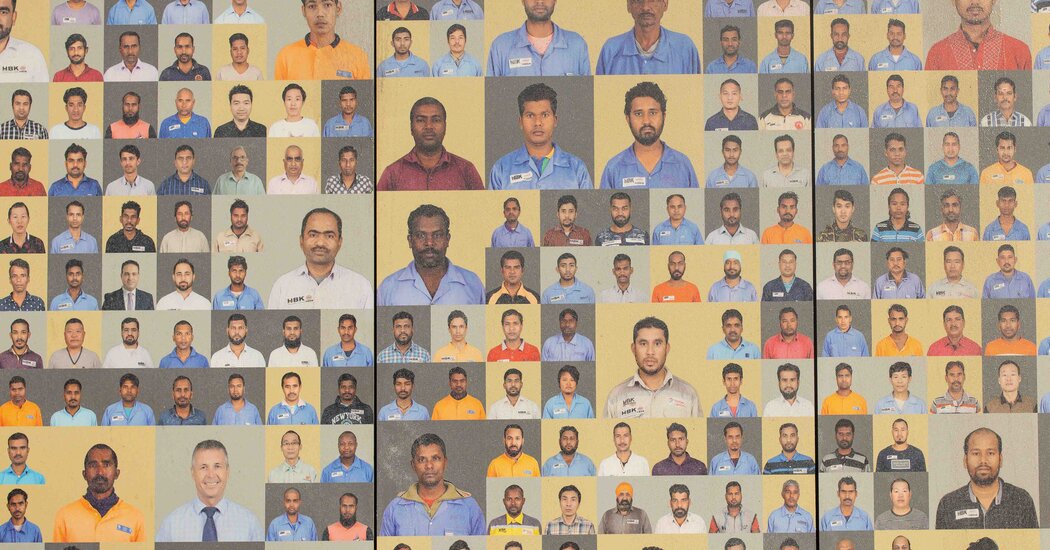On a Thursday morning last month, multiple flights were leaving for Dubai, Doha, Abu Dhabi and Kuala Lumpur, the capital of Malaysia, the biggest employer of Nepalis outside the Gulf countries. Departing passengers are funneled into one of three lines: one for Nepalis, another for foreigners and another marked by a board that reads, “Nepali Migrant Workers.” That lane was by far the busiest.
Bigyan Rai, 32, said he had worked in television advertising and as a model in his younger days before the jobs dried up. Standing in line at the airport, he was leaving his country, his family and his 10-month-old son. He has no better option, he said, amid a lack of opportunities and the endemic corruption of a system that takes advantage of the powerless.
“Sometimes,” he said, “I feel very unlucky to be Nepali.”
In Kathmandu, billboards, walls and buses are plastered with advertisements offering visa and work placement services as far as Canada, Australia, Japan and South Korea. But the siren of overseas jobs is heard loudest in the countryside.
In many ways then, there is nothing remarkable about the village of Sonigama, a collection of mostly mud-and-timber buildings surrounded by row upon row of sugar cane and paddy fields. Like nearly every town and village in Nepal, Sonigama is the kind of place that men willing to work are looking to leave.
At the edge of the village, Tetri Sharma is sitting on the grassy knoll next to a pond, waiting for a ride to a neighboring village. Sharma says two of her sons are in the Gulf region, one in Qatar and another in a place she cannot recall. A few minutes later, a man named Ram Prasad Mandal approaches the water. Dressed in a sarong and a stained white T-shirt, he is leading a buffalo toward the water with a wooden staff. Mandal, 55, says he, too, has a son in the region. His oldest son, Upendra, is working as a cleaner in Dubai.
Sumber: www.nytimes.com
